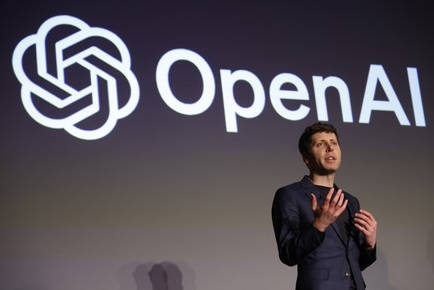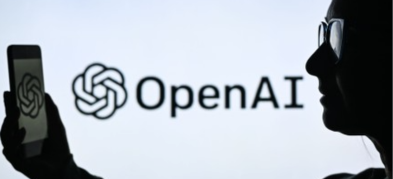Important Information
This website is managed by Ultima Markets’ international entities, and it’s important to emphasise that they are not subject to regulation by the FCA in the UK. Therefore, you must understand that you will not have the FCA’s protection when investing through this website – for example:
- You will not be guaranteed Negative Balance Protection
- You will not be protected by FCA’s leverage restrictions
- You will not have the right to settle disputes via the Financial Ombudsman Service (FOS)
- You will not be protected by Financial Services Compensation Scheme (FSCS)
- Any monies deposited will not be afforded the protection required under the FCA Client Assets Sourcebook. The level of protection for your funds will be determined by the regulations of the relevant local regulator.
Note: Ultima Markets is currently developing a dedicated website for UK clients and expects to onboard UK clients under FCA regulations in 2026.
If you would like to proceed and visit this website, you acknowledge and confirm the following:
- 1.The website is owned by Ultima Markets’ international entities and not by Ultima Markets UK Ltd, which is regulated by the FCA.
- 2.Ultima Markets Limited, or any of the Ultima Markets international entities, are neither based in the UK nor licensed by the FCA.
- 3.You are accessing the website at your own initiative and have not been solicited by Ultima Markets Limited in any way.
- 4.Investing through this website does not grant you the protections provided by the FCA.
- 5.Should you choose to invest through this website or with any of the international Ultima Markets entities, you will be subject to the rules and regulations of the relevant international regulatory authorities, not the FCA.
Ultima Markets wants to make it clear that we are duly licensed and authorised to offer the services and financial derivative products listed on our website. Individuals accessing this website and registering a trading account do so entirely of their own volition and without prior solicitation.
By confirming your decision to proceed with entering the website, you hereby affirm that this decision was solely initiated by you, and no solicitation has been made by any Ultima Markets entity.
I confirm my intention to proceed and enter this websiteSam Altman Net Worth in 2025 At a Glance
As the CEO of OpenAI, he is at the centre of the AI revolution, with ChatGPT now used by millions and rivals like Meta, Google, and Anthropic chasing the same frontier. Yet despite the spotlight, his personal fortune doesn’t rise and fall the way most expect. In 2025, Sam Altman net worth is estimated in the low-billions. Forbes lists him on its 2025 World’s Billionaires roster (rank #2233). But the story of how it’s built, and why OpenAI’s growth only affects it indirectly, is far more interesting than a single headline number.

Altman’s Net Worth is not Tied to OpenAI Equity
The defining fact: Sam Altman says he holds no OpenAI equity, and his OpenAI pay was about $76,001 in 2023, a symbolic amount for a CEO in Big Tech. Taken together, OpenAI’s valuation headlines do not directly reprice Sam Altman net worth. The bulk of his wealth instead stems from venture funds and private stakes built up over years.
Sam Altman Net Worth and OpenAI
Even without shares, OpenAI’s scale does influence Sam Altman net worth, though indirectly.
Operating momentum and scale
OpenAI posted roughly $4.3B in H1 2025 revenue and is guiding toward ~$13B for the full year, according to multiple reports citing internal disclosures. These numbers signal real enterprise demand for ChatGPT and the API, strengthening Altman’s position in the AI economy.
Capital intensity and cash burn
The same disclosures describe heavy cash burn and large R&D and marketing outlays, context for how hard the frontier is being pushed. One analysis also notes a planned employee share tender near a $500B valuation, plus major compute partnerships as OpenAI scales its data-center footprint.
None of this drops dollars into Altman’s pocket, but it amplifies his soft power of deal flow, partner access, and the perceived value of his non-OpenAI bets.
In short, OpenAI’s business doesn’t directly change Sam Altman net worth, yet its growth increases his influence and is often the precursor to better entry, better terms, and better exits in the private holdings that do drive his wealth.
Sam Altman Net Worth vs Big Tech Founders with Stock
Another reason Sam Altman net worth behaves differently: founders like those at Meta or Alphabet hold large, public equity stakes marked to market daily. Altman’s wealth, by contrast, is dominated by illiquid venture positions that reprice only at raises, tenders, or IPOs. That means more stability between events and sharper step-changes when liquidity arrives.
Meta and the AI Field Fit In
Meta’s Llama roadmap and distribution across Facebook, Instagram, and WhatsApp keep pressure on closed-source models, shaping pricing and adoption dynamics across the industry. Google’s Gemini brings massive distribution via Search, Android, and Workspace.

This competitive heat affects OpenAI’s moat and monetization, which in turn shapes the opportunities around the companies and funds that ultimately underpin Sam Altman net worth, even if his personal balance sheet doesn’t hold OpenAI stock.
What Could Move Sam Altman Net Worth Next
For Sam Altman net worth, the high-impact catalysts are liquidity events in portfolio names (e.g., secondary sales or IPOs of large private holdings), not OpenAI valuation moves. A buoyant AI cycle can still lift the tide if OpenAI, Meta, Google, Anthropic, and others keep accelerating real adoption, adjacent bets may re-rate higher, and that’s where Altman’s wealth lives.

What If OpenAI Had a Stock Tomorrow?
There are two different lenses:
OpenAI as a public listing (or broader tender)
Recent reporting describes an employee share sale discussion around ~$500B valuation. A formal listing or a recurring secondary program would create clearer price discovery for OpenAI and could set comps for the broader AI stack (infrastructure, apps, tooling).
That has ecosystem effects, potentially improving marks for AI-adjacent private holdings that feature in Sam Altman net worth. But unless he acquires equity, OpenAI’s ticker itself still wouldn’t directly add to his fortune.
OpenAI stock as a market signal
A durable public multiple on OpenAI would benchmark the unit economics of frontier models and the premium the market assigns to distribution, data, and compute access.
A strong reception could lift comparable assets across Altman’s network; a weak one might compress multiples sector-wide. Either way, Sam Altman net worth would move indirectly via portfolio marks, not via an OpenAI position.
Conclusion
Sam Altman net worth in 2025 is best understood as low-billions from venture and private holdings, not OpenAI equity or salary. OpenAI’s momentum of $4.3B H1 revenue, a path to ~$13B, and talk of a ~$500B employee tender still matters because it magnifies Altman’s influence and lifts the broader AI investment climate where his wealth actually sits.
If OpenAI stock were to trade publicly or if employee tenders became routine, the biggest effect on Sam Altman net worth would likely come through the ecosystem: better comps, more capital, and higher marks for adjacent private assets, not a direct windfall from OpenAI shares he doesn’t hold.
Disclaimer: This content is provided for informational purposes only and does not constitute, and should not be construed as, financial, investment, or other professional advice. No statement or opinion contained here in should be considered a recommendation by Ultima Markets or the author regarding any specific investment product, strategy, or transaction. Readers are advised not to rely solely on this material when making investment decisions and should seek independent advice where appropriate.












